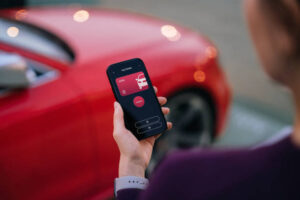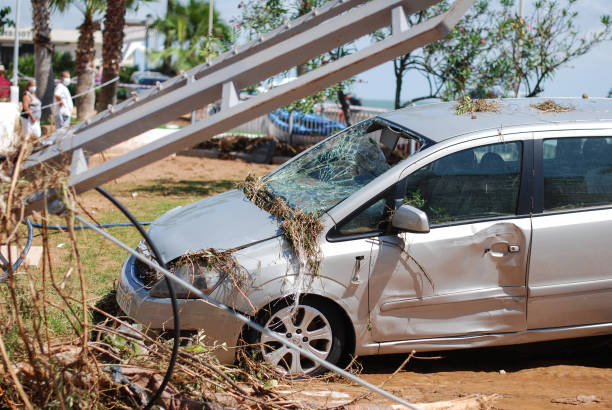The Unfortunate Twist: My Car Insurance Got Cancelled – What You Need to Know. Hey there, fellow readers! Today, I’m diving into a topic that hits close to home for many of us – the dreaded moment when your car insurance gets cancelled. It’s a situation that can send shivers down your spine, but fear not! With over a decade of experience in the insurance industry, I’m here to guide you through the ins and outs of dealing with a cancelled car insurance policy. So, buckle up and let’s navigate this unexpected detour together.
READ ALSO;
- Navigating the Impact of Interest Rate Hikes: What You Need to Know
- Understanding the Average Monthly Car Insurance Bill: Factors, Tips, and Savings
- Joint Brokerage Account Tax Reporting: A Comprehensive Guide
- Insurance for Young Female Drivers: Navigating Coverage and Savings
- Burst Pipes Water Damage: How to Prevent, Recover, and Protect Your Home
Understanding the Why: First things first, let’s address the elephant in the room – why did your car insurance get cancelled? There are a few common reasons that could lead to this unfortunate event:
- Missed Payments: If you’ve fallen behind on your premium payments, your insurer might decide to cancel your policy. Remember, timely payments are crucial to maintaining your coverage.
- Fraudulent Activity: Engaging in fraudulent activities, like providing false information or making exaggerated claims, can lead to an immediate cancellation.
- High-Risk Behavior: Repeated traffic violations, accidents, or driving under the influence can flag you as a high-risk driver, prompting the insurer to cancel your policy.
- Non-Disclosure: Failing to disclose important changes, such as modifications to your vehicle or changes in usage, can lead to a cancellation.

The Aftermath: So, your car insurance has been cancelled – what now? Here’s a step-by-step guide to help you navigate the aftermath:
- Contact Your Insurer: Reach out to your insurer immediately to understand the reason behind the cancellation and explore potential solutions.
- Shop for New Coverage: Don’t wait until the last minute to secure new car insurance. Being without coverage could lead to legal and financial troubles. Compare quotes from different insurers to find the best deal.
- Understand High-Risk Pools: If you’re having trouble finding coverage due to a high-risk status, some states offer high-risk insurance pools as a last resort. These policies are designed for drivers who might otherwise struggle to find coverage.
- Address the Issue: If your cancellation resulted from a problem you can rectify, such as missed payments or a high-risk status, take steps to correct the situation. This could involve attending defensive driving courses, improving your driving record, or settling any outstanding payments.
Preventing Future Cancellations: Now that you’ve successfully navigated the storm, let’s discuss how to prevent future car insurance cancellations:
- Stay Informed: Keep your insurer updated about any changes, such as address, vehicle modifications, or changes in usage.
- Drive Responsibly: Maintaining a clean driving record is crucial. Avoid traffic violations and practice safe driving habits.
- Timely Payments: Set reminders for premium payments or consider automatic withdrawals to ensure you never miss a due date.
- Honesty Is the Best Policy: Always provide accurate information when applying for or renewing your insurance. Transparency goes a long way in maintaining trust with your insurer.
Rebuilding Trust: Working Towards a Secure Automotive Future
Maintaining Communication: Your relationship with your insurance provider isn’t just a transactional one – it’s a partnership built on trust. Keeping the lines of communication open is essential for a smooth journey ahead. If you’ve experienced a policy cancellation, use this opportunity to establish a stronger connection with your insurer. Regularly review your coverage, discuss any concerns, and ask questions to ensure you have a comprehensive understanding of your policy.
Utilizing Technology: In the digital age, technology can be your ally in preventing policy cancellations. Many insurers offer mobile apps and online portals that allow you to manage your policy, make payments, and access important documents conveniently. Utilize these tools to stay on top of your insurance game and receive timely notifications about upcoming payments or policy updates.
Exploring Alternative Coverage Options: If you’re struggling to find traditional car insurance due to a cancellation or high-risk status, don’t lose hope. There are alternative coverage options you can explore:
- Usage-Based Insurance (UBI): UBI programs track your driving behavior and offer discounts based on your actual driving habits. This can be a great option if you’re a responsible driver looking to prove your safe driving skills.
- Non-Standard Insurance: Non-standard insurers specialize in providing coverage to high-risk drivers. While premiums might be higher, this could be a temporary solution to help you rebuild your driving record.
- Pay-Per-Mile Insurance: If you don’t drive frequently, pay-per-mile insurance calculates your premium based on the miles you drive. This can be cost-effective for low-mileage drivers.
Learning from Experience: A cancelled car insurance policy can serve as a wake-up call to reevaluate your driving habits and financial responsibility. Use this experience as a learning opportunity to make positive changes:
- Budgeting: Creating a budget that includes your insurance premium can help you avoid missed payments in the future.
- Safe Driving Practices: Focus on improving your driving habits to maintain a clean record. Enroll in defensive driving courses to enhance your skills and potentially qualify for discounts.
- Emergency Fund: Establish an emergency fund to cover unexpected expenses, such as repairs or deductible payments, without impacting your insurance payments.
Final Thoughts: While the road to recovery after a cancelled car insurance policy might seem daunting, it’s important to remember that setbacks are simply detours on the journey of life. By understanding the reasons behind your cancellation, taking proactive steps to prevent future issues, and exploring alternative coverage options, you can regain your footing and continue driving confidently.
Life is full of twists and turns, and sometimes we encounter unexpected challenges like a cancelled car insurance policy. However, armed with the right knowledge and a proactive attitude, you can navigate these challenges and steer towards a secure automotive future. So, embrace the lessons, stay informed, and keep your eyes on the road ahead – there’s a bright and insured journey awaiting you.
Until next time, drive responsibly and stay covered!
Frequently Asked Questions (FAQ) – Navigating Car Insurance Cancellations
Welcome to the FAQ section of our blog post, where we address some of the most common questions about dealing with a cancelled car insurance policy. We understand that this can be a challenging situation, so let’s dive right into the answers you need:
1. Why did my car insurance get cancelled? Car insurance can be cancelled for various reasons, such as missed payments, fraudulent activity, a high-risk driver status, or non-disclosure of important information. It’s important to review your policy and communicate with your insurer to understand the specific cause.
2. What should I do if my car insurance is cancelled? If your car insurance is cancelled, the first step is to contact your insurer to understand the reason behind the cancellation. You’ll then need to secure new coverage as soon as possible to avoid driving without insurance, which could lead to legal and financial consequences.
3. Can I get insurance after a cancellation? Yes, you can still obtain car insurance after a cancellation. There are insurers who specialize in providing coverage to drivers with a history of cancellations or high-risk status. Be prepared for potentially higher premiums, and compare quotes from different insurers to find the best option for your situation.
4. How can I prevent future cancellations? To prevent future cancellations, it’s important to maintain open communication with your insurer, drive responsibly, make timely premium payments, and provide accurate information when applying for or renewing your policy. Taking defensive driving courses and improving your driving record can also help.
5. Will my rates be higher if I’ve had a policy cancelled? Having a policy cancelled can affect your insurance rates, as it signals to insurers that you might be a higher risk. However, by taking steps to improve your driving habits and maintaining a clean record, you can work towards lower rates over time.
6. Are there alternative insurance options for high-risk drivers? Yes, there are alternative insurance options for high-risk drivers. Some of these include usage-based insurance (UBI), non-standard insurance, and pay-per-mile insurance. These options can provide coverage tailored to your driving habits and risk profile.
7. How can I rebuild trust with my insurer? Rebuilding trust with your insurer involves maintaining open communication, staying informed about your coverage, and using technology to manage your policy effectively. Regularly reviewing your policy and discussing any concerns can help strengthen your relationship with your insurer.
8. Can I switch insurers after a cancellation? Yes, you can switch insurers after a cancellation. In fact, it’s a good idea to compare quotes from different insurers to find the best coverage and rates for your needs. Just be sure to provide accurate information during the application process.
9. What should I do if I can’t afford insurance premiums? If you’re struggling to afford insurance premiums, consider adjusting your coverage, increasing your deductible, or exploring discounts that may be available to you. It’s important not to drive without insurance, so explore all your options to maintain coverage.
10. How can I prove my safe driving habits to insurers? Some insurers offer usage-based insurance (UBI) programs that track your driving behavior. Enrolling in these programs can help you demonstrate your safe driving habits, potentially leading to discounts on your premiums.
Remember, each individual’s situation is unique, so it’s always a good idea to consult with your insurance provider directly for personalized guidance tailored to your circumstances. Facing a cancelled car insurance policy might be challenging, but with the right approach, you can overcome the obstacles and continue your journey with confidence. Drive responsibly and stay covered!
